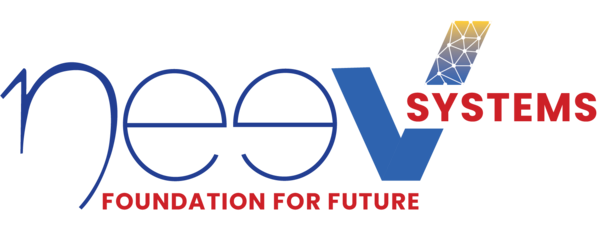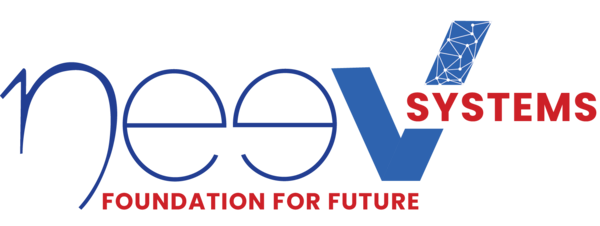The life science industry has always been a data-driven field, with research and development heavily relying on data to identify new drug targets, validate clinical trials, and track patient outcomes. However, today, life sciences companies face a significant challenge: how to keep pace with growing technology that is generating vast amounts of data and how to leverage the wealth of data available to its full potential to fulfill the needs of modern customers who seek not only medical attention but also personalized care, expert guidance, and readily accessible health information through digital platforms.
There are surveys to substantiate that despite the wealth of data available, many life sciences companies are falling short in leveraging this information to its full potential. A report by McKinsey indicates that “Life sciences companies are starting to capture value from digital and analytics but are still just scratching the surface.” While implementing data analytics has led to a 5 to 15% bottom-line improvement in select functional areas, equaling approximately $6 billion to $9 billion globally each year, this represents only a fraction of what could be achieved with full integration across the entire life sciences value chain. The untapped potential of data analytics in life sciences is estimated to yield an economic impact of $130 billion to $190 billion.
The need of the hour is clear: to leverage life sciences analytics to its full potential to deliver personalized and value-driven customer experiences. In this blog, we will explore how life sciences companies can overcome challenges and bridge the gap between customer expectations and reality by harnessing the power of data analytics. But before we delve into the intricacies of data analytics in life sciences, let’s first examine the specific challenges faced by the industry and how data analytics can help address them.

Revolutionize Life Sciences with Data
Navigating Reality: Tackling Common Challenges in Life Sciences with Data Analytics
- Data Handling Inefficiencies: Life sciences data management is one of the main challenges. Life science companies get large volumes of data from R&D, clinical trials, patient records, genetic information, and daily operations.
Solution: By aggregating and analyzing disparate datasets, data analytics can provide insights into disease trends, treatment outcomes, and patient populations, facilitating more informed decision-making.
- Regulatory Compliance: Navigating complex regulatory requirements and ensuring adherence to strict guidelines such as GDPR and HIPAA for drug development and approval is a significant challenge.
Solution: Data analytics can help ensure compliance with regulatory requirements by facilitating data transparency, traceability, and auditability throughout the drug development lifecycle.
- Inefficient Clinical Trial: Designing efficient and effective clinical trials, recruiting suitable participants, and minimizing the trial duration and costs demands an accurate interpretation of life sciences data.
Solution: Data analytics in life sciences can optimize the clinical trial processes by identifying suitable participants for trials, optimizing trial protocols, and predicting patient treatment responses, thereby reducing costs and accelerating drug development.
- Drug Discovery and Development: Analyzing vast amounts of complex data from various sources, identifying promising drug targets, streamlining the drug development process, and reducing time to market for new medications pose significant challenges for life sciences companies.
Solution: Using predictive analytics, researchers can anticipate disease progression, identify at-risk patient populations, and optimize treatment strategies. Data analytics enables real-time monitoring of patient health parameters, enabling early detection of adverse events, treatment responses, and medication adherence.
- Personalized Medicine: Tailoring treatments to individual patients requires extensive genetic, clinical, and demographic data analysis. Harmonizing data from various sources and ensuring the accuracy and reliability of the collected data pose significant challenges for life sciences companies.
Solution: Data analytics can analyze genetic and clinical data to support the development of personalized treatment plans tailored to individual patients’ genetic profiles and medical histories.
- Conventional Market Analysis: Many life sciences firms rely on traditional methods for market analysis, which can cause misalignment with consumer demands and internal standards, impacting customer satisfaction and product placements.
Solution: Adopt advanced analytics tools for accurate market trend analysis. Incorporate market intelligence platforms to gather comprehensive insights. Implement predictive modeling for life sciences forecasting and ensure cross-functional alignment.
- Inefficient Data Processing Challenge: Life sciences companies face hurdles in swiftly processing data, hindered by outdated systems, leading to data silos, inconsistent insights, and scalability issues, hampering various operational aspects.
Solution: Modernize data infrastructure with cloud-based solutions. Utilize data virtualization to break down silos. Embrace agile analytics practices for faster insights. Invest in big data technologies for scalability. Implement robust data governance frameworks for quality and compliance.
The Critical Need To Address Life Sciences Challenges
The challenges facing life sciences companies are not merely inconveniences but significant barriers to progress and innovation in an industry critical to global health and well-being. Failure to address these challenges promptly can have far-reaching consequences, including:
- Dissatisfied customer/patient experience
- Lost revenue opportunities
- Wasted or underutilized resources
- Reputational damage
- Competitive disadvantage
- Regulatory risks
- Limited growth
According to a report by MarketsandMarkets, the global life science analytics market reached an estimated value of $27.1 billion in 2022 and is projected to grow to $47.5 billion by 2027, with a compound annual growth rate (CAGR) of 11.8% during the period from 2022 to 2027. This growth is largely driven by the increasing adoption of analytics across the industry. However, there is a notable scarcity of organizations equipped with in-house experts capable of translating large volumes of data into actionable insights. According to Randstad Sourceright’s 2022 Talent Trends report, 33% of C-suite and human capital leaders in the life sciences and pharmaceuticals sector identified talent scarcity as a significant challenge. This shortage of skilled professionals capable of handling life science analytics solutions acts as a significant restraint on market growth.
In conclusion, the future of the life sciences industry hinges on the effective integration of data analytics. By embracing this technology, companies can navigate challenges, anticipate demands, and drive innovation. Let’s work together to harness the power of data, shaping a future where personalized medicine is the norm, clinical trials are conducted swiftly and efficiently, and real-time insights from vast data repositories guide healthcare decisions.
Empower Your Life Sciences Journey with Custom Data Analytics Solutions
At Neev Systems, we understand the intricate challenges life sciences companies face in harnessing the full potential of data analytics. We provide a comprehensive suite of data and analytics solutions, spanning from Data Warehousing and Modeling to Analytics, Migration, Mining, Visualization, and Ingestion. These solutions are diverse, customizable, and meticulously designed to empower your organization to adeptly navigate the challenges inherent in the life sciences sector.
Our aim is clear: to drive innovation and facilitate the delivery of value-driven customer experiences. Ready to unlock the full potential of your life sciences data?

Drive Innovation in Life Sciences

Amar Chand Dasari
With 15 years of experience in Data Analytics and Business Intelligence, Amar excels in designing scalable solutions for industries like Manufacturing, Finance, and Telecom. His expertise includes hybrid BI architectures with AWS, Azure, and Snowflake. Amar is passionate about delivering end-to-end solutions that turn data into actionable insights.


